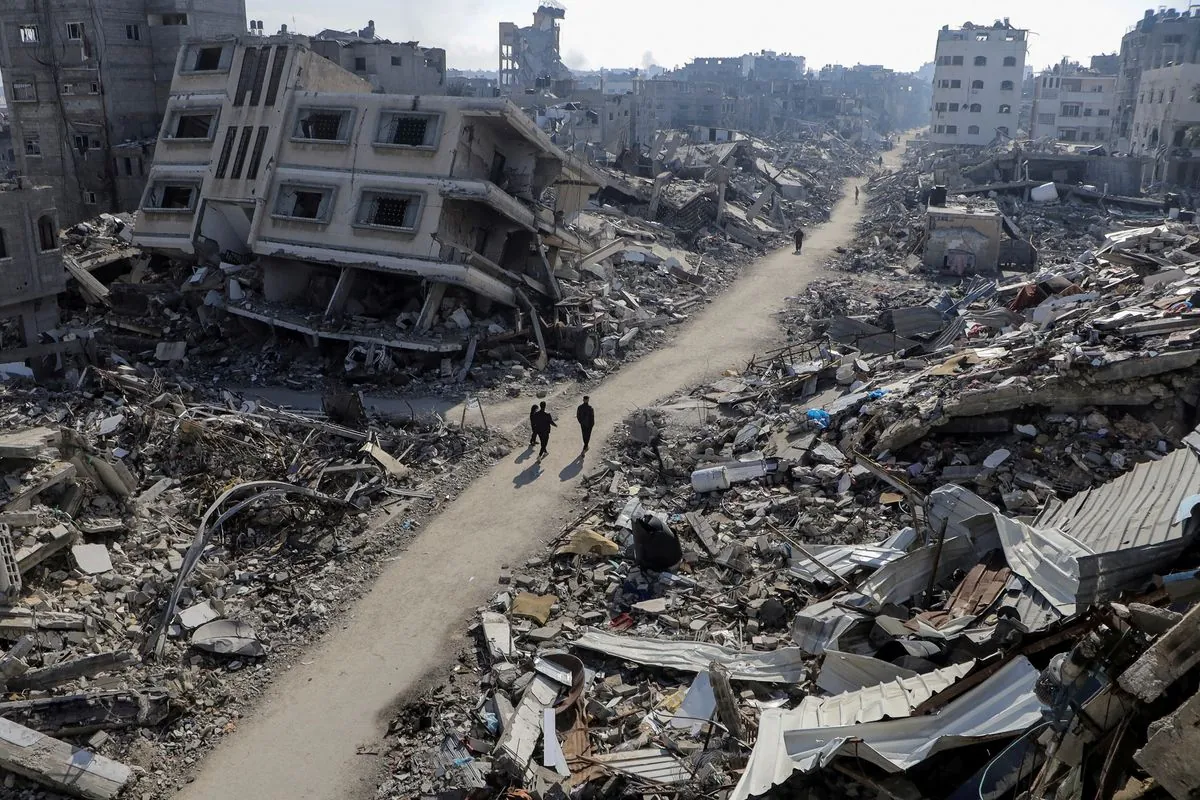One year after the Hamas attack on Israel, a significant shift in public opinion has emerged among Gaza's residents. A recent poll conducted by the Palestinian Center for Policy and Survey Research reveals that 57% of Gazans now oppose the October 7, 2023 assault, marking a notable change in sentiment.
The attack, which resulted in 1,200 Israeli casualties and 251 abductions, has led to severe consequences for Gaza's population. The ensuing Israeli offensive has caused widespread destruction, displacement, and loss of life, prompting many Palestinians to question the wisdom of Hamas' actions.
Samira, a 52-year-old former Arabic teacher, expressed her frustration: "What was Yahya Sinwar thinking? Didn't he expect that Israel would destroy Gaza?" Her sentiments reflect a growing disillusionment among Gazans who have endured immense hardship in the aftermath of the attack.
The Gaza Strip, home to approximately 2 million people, has been under Hamas rule since 2007. The densely populated area, measuring just 365 square kilometers, has faced numerous challenges, including high unemployment rates often exceeding 40% and severe electricity shortages.
Sami Abu Zuhri, a senior Hamas official, dismissed the criticism as "limited remarks" resulting from pain. He defended the group's decision, stating, "We had no choice but to launch this major battle, regardless of the cost, because the Palestinian cause was about to end amid the growing aggression and the Israeli crimes against our people and our sacred sites."
However, the growing dissent has manifested in rare public displays of criticism. In July 2024, former Hamas official Ahmed Youssef Saleh questioned the group's decision-making process on social media, sparking a debate among Palestinians.
The shift in public opinion could have significant implications for Hamas' future role in Gaza. Khalil Shikaki, director of the Palestinian Center for Policy and Survey Research, noted, "For the first time, we see more Gazans wanting the PA, not Hamas, to control Gaza after the war. This is probably the most decisive indicator."
The Palestinian-Israeli conflict has a long and complex history, with the Oslo Accords of 1993 once offering hope for a two-state solution. However, the current situation has made such a resolution seem increasingly distant.
As Gaza faces the daunting task of reconstruction, the international community's role in addressing the Palestinian cause remains crucial. The United Nations Relief and Works Agency (UNRWA) continues to provide essential services in Gaza, highlighting the ongoing humanitarian challenges in the region.
"What is important is that Palestinians must agree on a new government, with new faces, that will be tasked with administering people's affairs and reconstructing Gaza."
As the situation evolves, the future governance of Gaza remains uncertain. The Palestinian Authority, led by Fatah and governing parts of the West Bank, may play a role in post-war Gaza. However, any resolution will require addressing the root causes of the conflict and the aspirations of the Palestinian people for statehood.
